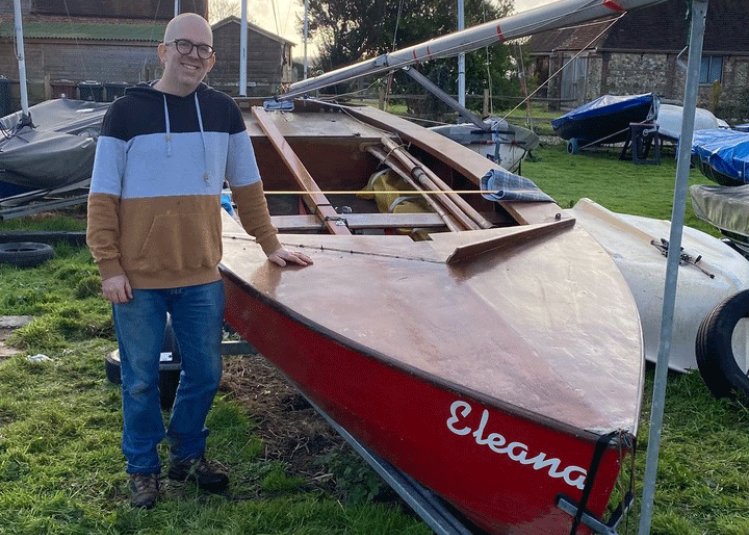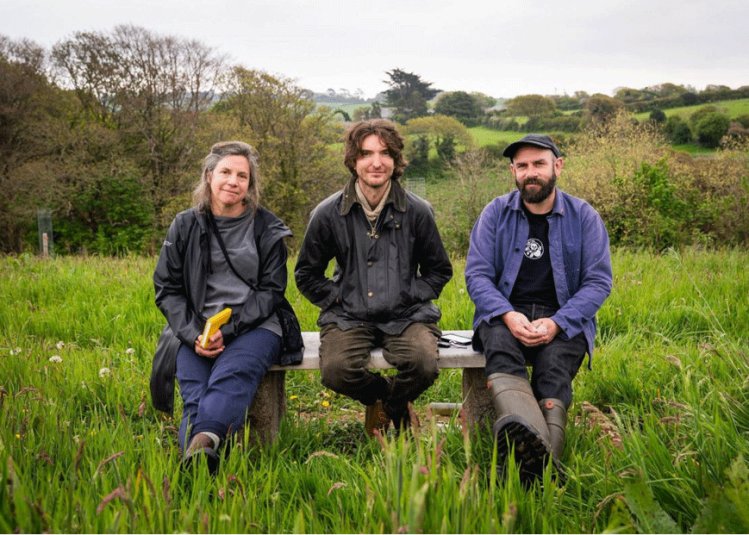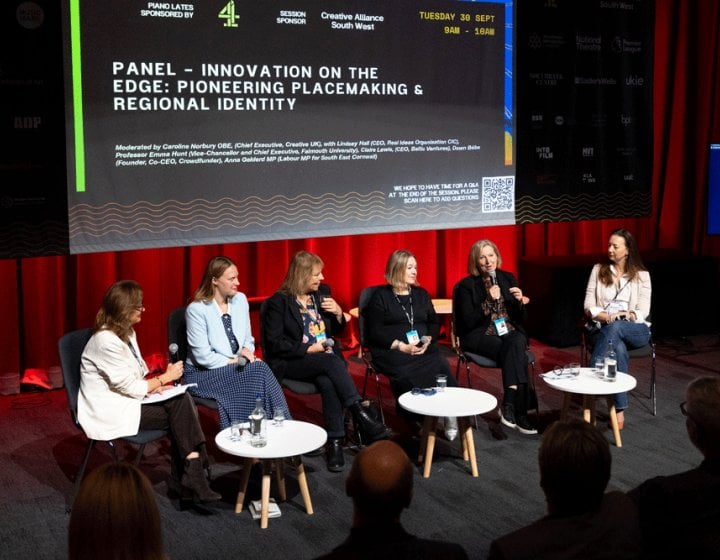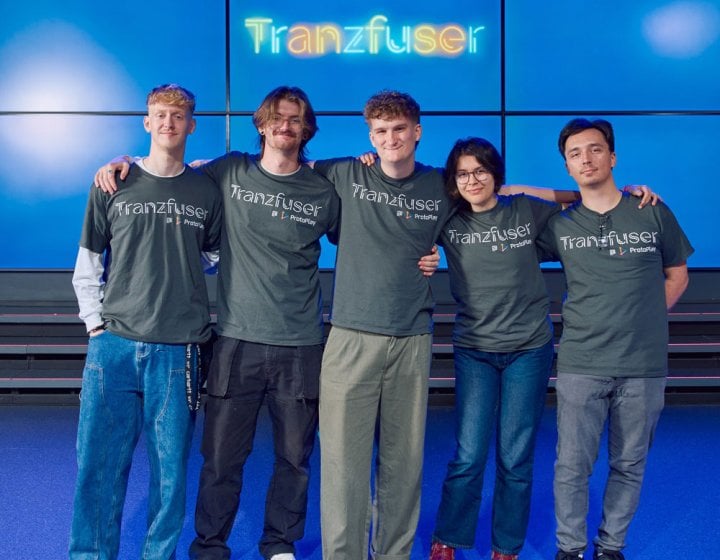Dr Greg Borne: In conversation with Skuld’s Matthew Burton
17 January 2024
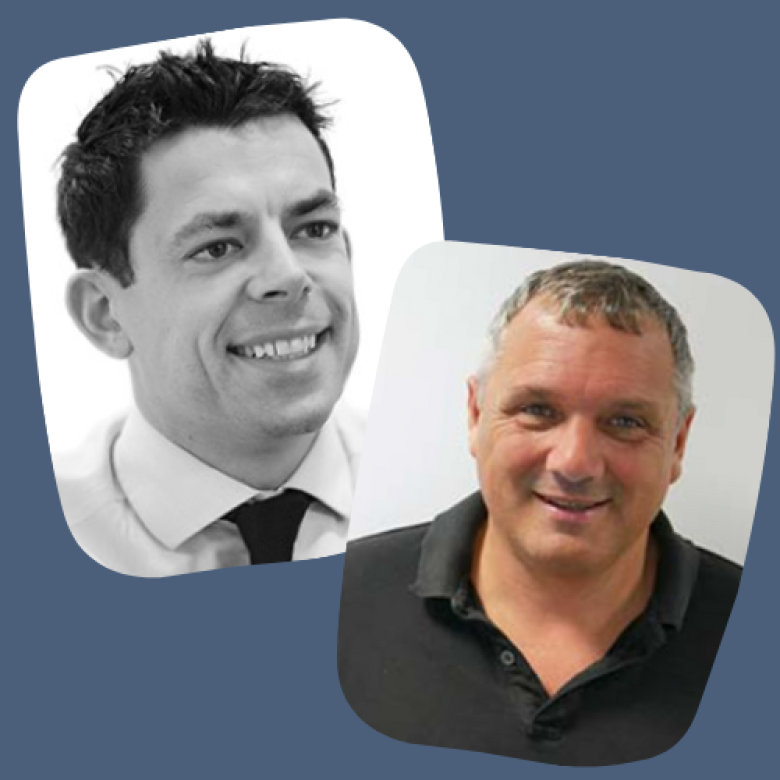
By Dr Greg Borne, Course Leader for MSc International Business Management.
In August 2023 I became course lead MSc International Business Management; a key part of Cornwall Business School at Falmouth University. After nearly 25 years working in higher education, I've learnt that effective learning comes from seeing and experience excellence in the classroom; and getting insights from those that are out in the world ‘doing the job’.
One of the unique features of the course is our engagement with industry leaders in both global and local organisations. I spoke to friend (and fellow surfer!) Matthew Burton - Senior Vice President at Skuld – who has joined MSc International Business Management as a visiting lecturer.
Dr Greg Borne: Can you just tell me a little bit about what Skuld does, and your role there?
Matthew Burton: Skuld is a mutual Norwegian marine insurer and a member of the International Group of Protection and Indemnity Clubs. Collectively, the International Group of P&I Clubs insure over 90% of the world's ocean-going tonnage and responds to major casualties involving ships at sea (Costa Concordia being a good example). Skuld is 125 years old, and operates on a global platform with 11 offices around the world. In addition to insuring P&I liabilities, Skuld also insures vessels for Hull & Machinery and Energy related exposures for assets operating in oil fields.
Greg: What got you interested in this career?
Matt: I've always been drawn to the marine industry, spanning both my academic and professional career. It's a career that draws on my engineering background, my experiences from working offshore, blending that with my academic studies in maritime business and law. It's a truly global business, with an ever-changing operating environment.
Greg: What’s the best and the most challenging aspects of your role?
Matt: No one day is ever the same and that's what I love. I spend a large part of my time on the road, coordinating our efforts around the world and across all classes of business. I can spend one minute working with the CEO of one of the world’s largest conglomerates, to the next handling mediations with lawyers. I deal with clients of all sizes in terms of operations and deal directly with brokers, who act as intermediaries on the production of business to Skuld. I'm a ‘people person’ and love the diversity of dealing with different cultures around the world, and working with my colleagues to ensure a positive outcomes. It does pose certain challenges when you’re bouncing from one time zone to another, but the pros outweigh the lack of sleep!
Greg: What do you think are the future priorities for your sector?
Matt: The geopolitical uncertainty and the demands placed on the International Group to respond and enforce sanctions globally. The burden on Skuld as an organisation - and as a member of the IG - to police the seas is a real challenge. A major priority is to resolve the issue of ‘dark fleets’ operating without any identifiable ownership, and without insurances to protect other shipowners and, ultimately, the environment.
Greg: How important is sustainability to both yourself and Skuld?
Matt: Sustainability is at the forefront of our operations as an organisation. Skuld were one of the first marine insurers to issue an ESG report, outlining its obligations as an organisation and defining its commitments to the United Nations Sustainable Development Goals. As the marine industry grapples with climate targets and the dictat for low sulphur and cleaner burning fuels, we as an organisation help in R&D and measure the individual performance of shipowners through the 'Poseidon Principles'.
Greg: You studied in Falmouth – can you tell me a little bit about that and how your education prepared you for your current role?
Matt: I moved to Falmouth from Stratford-upon-Avon when I was 16, due primarily for my love of boats. I studied Marine Engineering at Falmouth Marine College and was able to apply myself in a much more meaningful way, because it was something I enjoyed and could relate to. After finishing my studies, I started sailing professionally before working towards my professional qualifications at Warsash Naval College [now known as Warsash Martime School]. My qualifications led me to skippering yachts and racing professionally around the world, before taking on a captaincy role on a super yacht, where I worked for 4 years. Expanding my horizons, I did a short stint as Chief Officer onboard a products tanker, before realising a life at sea perhaps wasn't for me. It was then that I decided to move to Devon and completed my BSc in Maritime Business and Law at Plymouth University. My professional career, with time spent at sea, has been fundamental in understanding shipping operations. Overlaying that with the business and legal background from my degree, has given me a more pragmatic and holistic view of the marine industry versus my peers.
Greg: You’ll provide invaluable insights to students as a visiting lecturer on MSc International Business Management – what do you think are some of the key messages for students?
Matt: My role within Skuld has always been multi-faceted, but as an organisation operating in key financial markets and on a global platform, I am tasked with producing business that ensures our financial stability and delivers on the organisation’s obligations to its stakeholders. Delivering on that is subjective, but having mentored many of my colleagues over the years, I do believe that apart from all of the fluff around hard work, as an individual you need to really know your business; have an in-depth knowledge of your client and their operations and be able to differentiate yourself from your competition. First impressions are lasting and that should always be remembered, and if you're not living and breathing what you do, then the danger is that complacency takes over and you leave the door wide open for your competitors.
This interview is reproduced [original interview] with kind permission of Dr Greg Borne.

